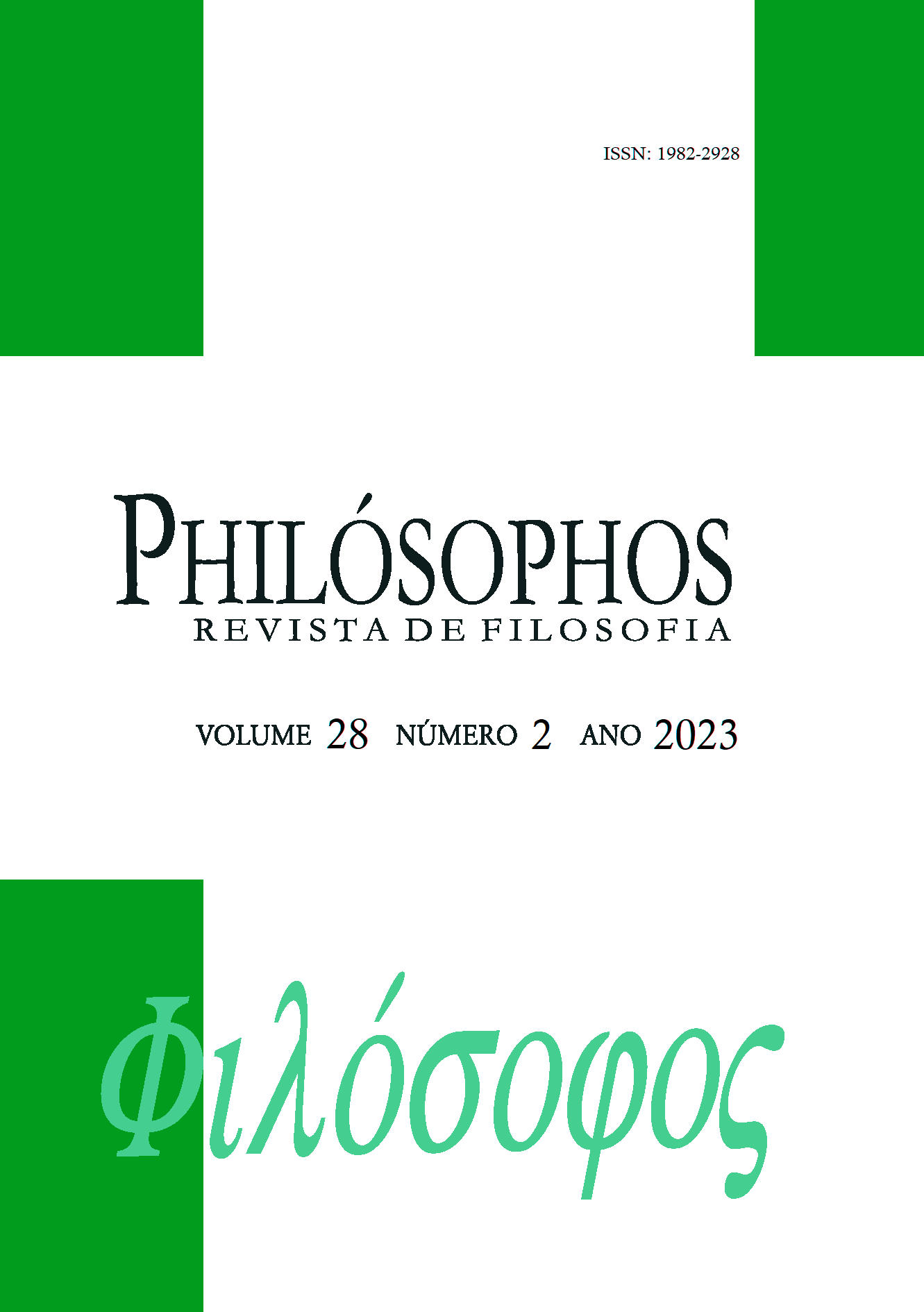For a philosophical anecdotal
Deleuze and the history of philosophy
DOI:
https://doi.org/10.5216/phi.v28i2.76864Keywords:
Gilles Deleuze, Anedotas Vitais, História da Filosofia, Ensino de Filosofia.Abstract
This article argued about the way that vital anecdotes, a concept developed by Friedrich Nietzsche, were methodologically appropriated by Gilles Deleuze. This appropriation, we believe, is linked to the deleuzian and deleuzo-guattarian appeal for a renewal of the history of philosophy and for the construction of a creative perspective of the philosophical craft, with strong impacts on the teaching of this discipline. Beginning by recovering the dialogue between Deleuze and some canonical conceptions about the history of philosophy, especially the perspectives of Ferdinand Aquié and Martial Gueroult. Trying to probe how the author of Difference and Repetition inserted himself in a methodological debate on how to carry out an eminently philosophical history of philosophy. In this way, seeking to understand Deleuze's own perspective, we will be able to recover the importance of vital anecdotes for his understanding of the role of the history of philosophy. For that, we recover the vitalist reading of Spinoza's philosophy proposed by Deleuze. Finally, we will present some concerns about the relevance of the uses of vital anecdotes for the construction of a different teaching of philosophy.
Downloads
Downloads
Published
How to Cite
Issue
Section
License
Copyright (c) 2023 Philósophos a journal of philosophy

This work is licensed under a Creative Commons Attribution-NonCommercial-NoDerivatives 4.0 International License.
Authors who publish in this journal agree to the following terms:
- Authors retain copyright and grant the journal right of first publication, with the work simultaneously licensed under a Creative Commons Attribution License that allows others to share the work with an acknowledgement of the work's authorship and initial publication in this journal.
- Authors are authorized to enter into separate, additional contractual arrangements for the non-exclusive distribution of the journal's published version of the work (e.g., publishing in an institutional repository or as a book chapter), with an acknowledgement of its authorship and initial publication in this journal.















